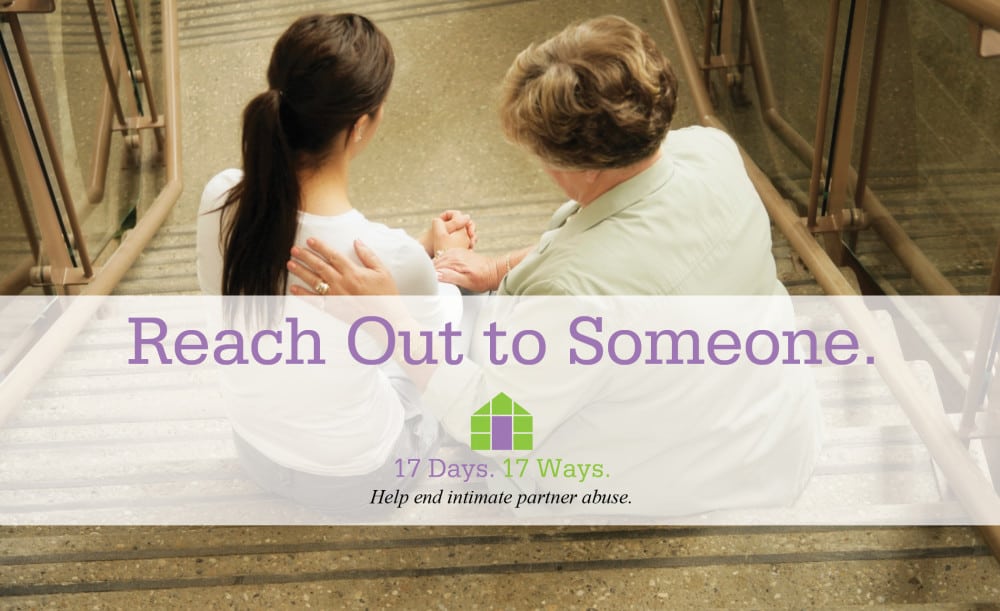17 Days/17 Ways – Reach Out to Someone
By Zach Logue
Student Blogger
Special note: Today’s post is written by a freshman student at the University of Kentucky who is participating in a service learning project.
One way to help end intimate partner abuse is to reach out to someone who you think might be abused. A simple “Hey, is there something wrong?” or “Is there something you want to talk about?” could do the trick.
If you suspect the abuse is escalated, more specific and drastic measures may be necessary. These could include offering a place to stay and helping someone make a plan to flee the abuse safely. You can always call the 24-hour hotline operated by GreenHouse17 for help.
Some of you are probably asking, “How will I know if someone is being abused by their partner?” This is a good question. There are many signs to be looking for that could suggest someone is being abused by a partner.
Some physical signs of abuse include bruises, cuts or scars, marks on the neck, and dental injuries. Common signs of emotional abuse are fearfulness of others, inability to sleep, and depression. A tendency to cancel plans you’ve made or becoming less engaged in your friendship could also signal something is wrong.
These are only a few examples. Every situation is unique. The National Domestic Violence Hotline offers additional suggestions to consider at this link.
Although reaching out to someone who might be experiencing partner abuse may seem like a touchy subject to talk about, it can only help. A simple question reminds them you care about their well-being and will believe them.
So, if you suspect that someone is experiencing partner abuse, just ask and be prepared with resources. Write down the GreenHouse17 24-Hour hotline number to have on hand. That’s 800-544-2022.
Additional thoughts from GreenHouse17 staff: Remember to respect decisions made by someone who his being abused, even if you don’t agree with these decisions. She or he is the only one who truly understands the level of danger faced. Someone who is being abused may leave and return to the abuser several times before permanently fleeing the abuse. Avoid judging this decision, and please don’t threaten to stop being there for someone if they choose to return. This is when they need you most.
This post is part of this year’s 17 Days/17 Ways Campaign to end intimate partner abuse.


